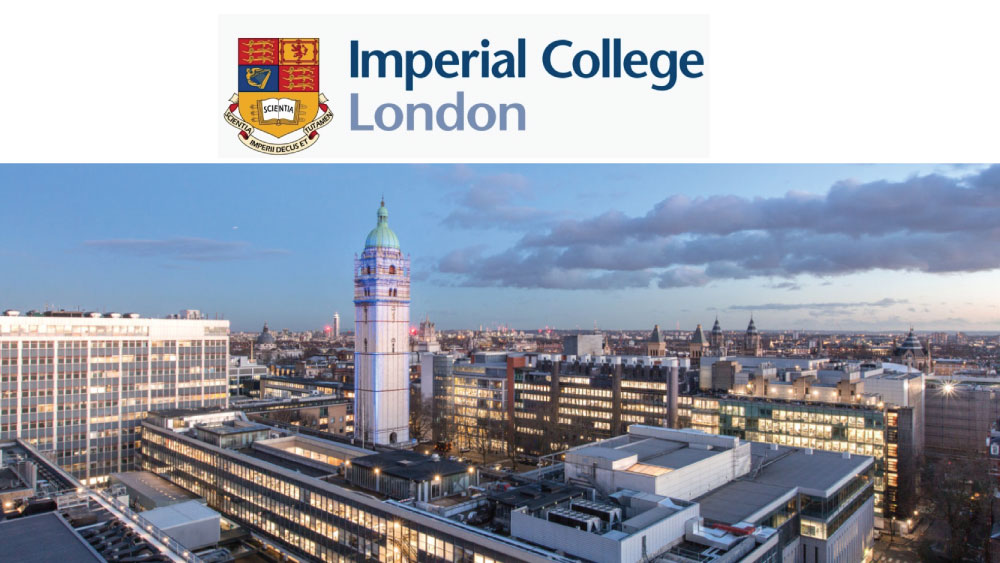Imperial College London PhD Scholarships: Eligibility, Application Process, Requirements, Coverage
Imperial College London PhD Scholarships Is Now Open For Qualified PhD Applicants. Check Out How To Apply And More.

Are you a high performing undergraduate or Master’s student and have a strong desire to undertake a PhD programme at a world class research institution? Do you know you could be selected to receive full tuition fees and a generous stipend for a PhD place at Imperial College London? This scholarships program aims to provide up to 50 research students with great potential the opportunity to work within their chosen research field with the support of an excellent supervisor.
Imperial College London PhD Scholarships are prestigious awards that enable outstanding students to pursue a PhD research degree at Imperial College London. Founded in 1907, Imperial College London is a world-renowned institution with a strong reputation for academic excellence and research innovation. In this article, we will delve into the eligibility criteria, application process, requirements, and coverage of Imperial College London PhD Scholarships.
Imperial College London
The Imperial College London has a rich history of academic excellence, dating back to 1907. Over the years, the college has produced many notable alumni, including Nobel laureates, politicians, and business leaders. Today, Imperial College London is ranked among the top universities in the world, with a strong reputation for research excellence and innovation.
Read Also: Scholarship Opportunities In Canada
Eligibility For Imperial College London PhD Scholarships
Opportunities for PhD funding via this scheme are extremely competitive, with higher than usual eligibility requirements. Before applying for this scholarship program, you should be confident that you are able to demonstrate outstanding academic performance. To be eligible for an Imperial College London PhD Scholarship, applicants must meet the following criteria:
• Be a domestic or international student.
• Have been accepted for admission to a PhD research program at Imperial College London.
• Have a minimum undergraduate degree with a first-class or upper second-class honors.
• Demonstrate exceptional academic achievement, research potential, and a commitment to making a positive impact in their field.
Application Process
Your eligibility requirement is reviewed by the department you have applied to and a shortlist of candidates will be selected and presented to the Imperial College Selection Panel for consideration. The Panel (which includes the Vice-provost and faculty Vice-Deans for research) makes the final decision and award the scholarship to candidate that show the most potential. However, the application process for Imperial College London PhD Scholarships typically involves the following steps:
• Apply for admission to a PhD research program at Imperial College London
• Submit an application for an Imperial College London PhD Scholarship through the College’s online application portal
• Provide required documents, including academic transcripts, references, and a research proposal
• Participate in an interview.
Read Also: Commonwealth Scholarships: Eligibility, Application Process, Requirements, Coverage
Requirements
To apply for an Imperial College London PhD Scholarship, applicants must provide:
• A completed online application form.
• Academic transcripts and certificates.
• References from two academic referees.
• A research proposal outlining their research goals, objectives, and methodology.
• Proof of English language proficiency (if applicable).
Coverage
Each of the 50 scholarships available provides the following support during the 3.5 years of study:
• Full funding for tuition fees.
• A stipend of £25,150 (2024-25 rate) per annum to assist with living costs.
• A consumables fund of £2,000 per annum for the first 3 years of study.
• A programme of bespoke opportunities and events delivered by the Graduate School.
• You will also have access to the full range of support available to postgraduates at Imperial, including tailored support for disabled and international students, and the wider Graduate School programme of professional skills courses.
Read Also: Gates Cambridge Scholarships: Eligibility, Application Process, Requirements, Coverage
Conclusion
Imperial College London PhD Scholarships are a unique opportunity for outstanding students to pursue a PhD research degree at Imperial College London. With its comprehensive coverage and rigorous selection process, the scholarship aims to empower future research leaders who will make a positive impact in their field.
Frequently Asked Questions
1. How Much Is The Stipend For Imperial College London PhD?
Successful applicants will be awarded a fully funded studentship. This includes: Annual National Minimum Doctoral Stipend, currently £19,237 + £2000 London allowance for 2024/25. Annual Tuition fees.
2. How Long Is A PhD In Imperial College London?
For full-time PhD students, the usual duration of study is around 36 months, and no longer than 48 months after registration. You may be able to study part-time. You will be expected to work across subject boundaries, and the Graduate School and your department will arrange activities to assist you in this.
3. What Is The Age Limit For PhD Scholarship In UK?
There is no age limit for applying to a PhD scholarship (fellowship or research assistance) in Europe. You are eligible to apply for the same at the age of 36 years also.
4. What Is The Acceptance Rate For Imperial College London PhD?
Every year between 50-70 successful applicants are accepted for the PhD programme in the Department. We have a wide variety of scholarships for PhD students, including funding from research councils, research projects, industry, and teaching scholarships. More than 80% of our PhD students receive funding.
5. How Do You Qualify For PhD At Imperial College London?
A minimum of an Upper Second Class honours is however normally required for most of our courses. Applicants for a postgraduate doctoral course should hold a first degree with a First or Upper Second Class Honours and should also be in possession of a Master’s degree with 65% or better.



